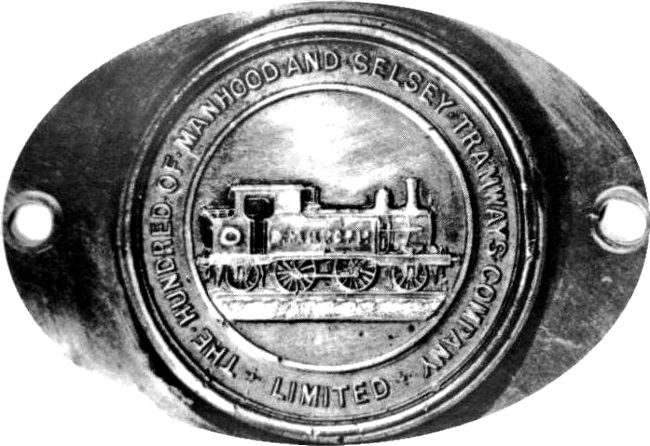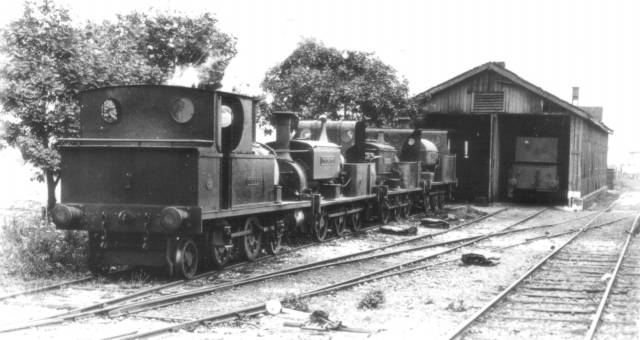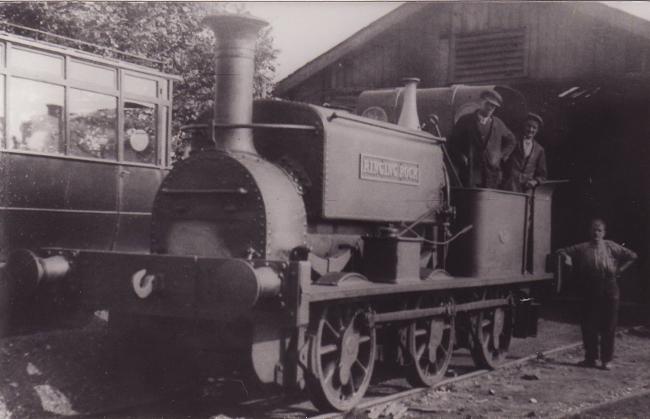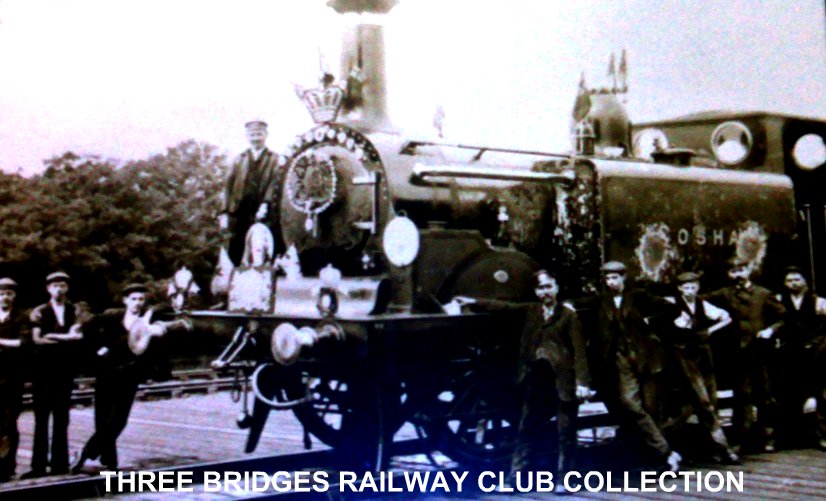
Railway accidents on the
L.B.S.C.R.
from http://www.railwaysarchive.co.uk


PHOTOGRAPHER UNKNOWN
Selsey Loco Shed

Railway accident on the
L.B.S.C.R.
PHOTOGRAPHER UNKNOWN
DERAILMENT AT TOOTH’S BANK
ON 1st SEPTEMBER 1897
Involving Driver James MacKinlay
& his fireman Lewis Minns
Eastbourne Loco
On the morning of Wednesday 1st September 1897, Driver James McKenly was working the 8.18 a.m. service from Eastbourne to Tunbridge Wells West, with a Class ‘D-tank’ No. 297 Bonchurch. The train was running around four minutes later and Driver James McKenly was trying to pick up time in order to meet a connecting train at Groombridge. As the train entered the Tooth Bank curve, at about 40 m.p.h. it suddenly left the track at speed and over turned on. Driver James McKenly was killed and his fireman Lewis Minns, was seriously injured, and 30 passengers suffered minor injuries
PHOTOGRAPHER UNKNOWN
On the 1st September 1897, the 8.18 a.m. Eastbourne to Tunbridge Wells train worked by Driver James McKenly driving a 'D' Class tank No. 297 'Bonchurch' , down Tooth's Bank between Heathfield and Mayfield. About 2 ½ miles North of Heathfield station at the foot of the bank the locomotive suddenly rolled violently and flung itself and the carriages off the tracks with a thunderous crash audible for a distance of 1 ½ miles. Some of the carriages came to rest at the foot of the steep embankment, while other strewn about the track and badly battered. Thirty passengers and the fireman were seriously injured while Driver James McKenly died before help arrived.
At the inquiry Lieutenant Colonel G. W. Addison found the speed excessive because of Driver James McKenly attempting to make up a four minute late departure and keep his Groombridge connection for London and Tunbridge Wells. On inspection the track was was found in poor shape with many rotten sleepers and curves having irregular elevation, which must have tipped the scales against the locomotive’s successful passage at high speed. As a result much of the line was hurriedly relaid and the Heathfield - Mayfield allowance increased from nine to eleven minutes to ensure easier running.
Mr J Daw, a lay preacher, described his experience in a little book which was published in 1905. He joined the train at Hailsham, and as it neared Mayfield he felt a jolting.
"In another moment the engine was off the rails and on the sleepers, the broken ends of which were knocking against the bottom," he said.
"Not knowing what was the matter, I turned to the window and saw the fourth carriage from the engine leaving the line on the opposite side to that on which the engine went over, and the fifth carriage following it and crushing into the end of it as they bounced down the embankment together. The middle part of the train was forced down the bank, the remainder of the carriages following after.
"The appalling crash that came upon the carriage I was in is beyond my power to describe. When the noise was over I opened my eyes and looked up, and to my astonishment I was alive.
"The roof, sides and doors of the carriage were gone. My head was cut in five places and blood was pouring down my face from a deep cut over my right eye, but I was perfectly conscious.
"I stepped out of the ruins of the carriage and looked around. The engine was lying on its side on the eastern bank, puffing and panting like some monster in its dying struggles. Passengers were moving about, such as could walk. Others were being rescued from the broken carriages, some through the windows, some lifted out from the doors as the carriages lay on their sides, and some came through the bottom of the carriages that had been wrenched away from the framework.
"As I glanced around the bank I saw the body of the engine driver. The men that had come to help the injured had found him under the wreck of the carriage I had been in."
James MacKinley was a Passed Cleaner at Brighton aged 19 in 1877

Three Bridges Loco Dept. on Queen Victoria's Diamond coronation in 1897.